Daily stress can take a serious toll on both mental and physical health, contributing to fatigue, anxiety, and a weakened immune system. Fortunately, research shows that certain foods can help support emotional balance and ease stress responses. By incorporating nutrient-rich options into your diet, you can naturally bolster your body’s ability to cope with stress. Below, discover a list of scientifically supported foods that can help you feel calmer and more resilient.
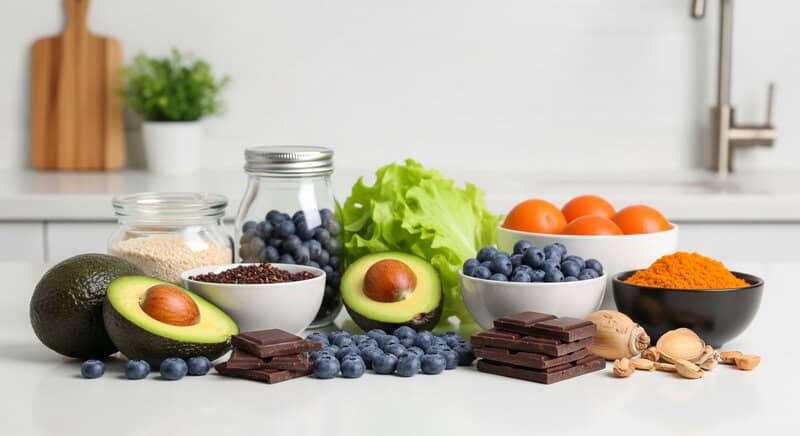
15 Foods That Naturally Lower Stress
1. Dark Chocolate

Dark chocolate is rich in flavonoids and magnesium, compounds known to lower stress hormone levels and promote relaxation. Flavonoids act as antioxidants that support brain health and enhance mood, while magnesium helps regulate the nervous system.
Compared to milk chocolate, dark chocolate contains higher concentrations of these beneficial nutrients and less added sugar, making it a healthier option for stress relief. For optimal benefits, choose dark chocolate with at least 70% cocoa content and enjoy it in moderation. Read more about dark chocolate and stress.
2. Salmon

Salmon is an excellent source of omega-3 fatty acids, particularly EPA and DHA, which have been shown to reduce anxiety and lower cortisol, the body’s main stress hormone. Studies suggest that regular consumption of omega-3-rich fish can help regulate mood and support overall brain health.
For those who prefer alternatives, other oily fish such as mackerel, sardines, and trout offer similar benefits. Incorporating these types of fish into your weekly meals can be a natural way to combat stress. Explore the research on salmon and stress reduction.
3. Blueberries

Blueberries are packed with antioxidants and vitamin C, both of which play a crucial role in combating oxidative stress and supporting healthy brain function. Research indicates that the high levels of flavonoids in blueberries can help reduce inflammation and boost mood by enhancing communication between brain cells.
Their vitamin C content also helps regulate cortisol levels, further easing stress. Blueberries are easy to add into your daily routine—enjoy them in smoothies, on top of oatmeal, or as a refreshing snack. Learn more about blueberries and mental health.
4. Yogurt
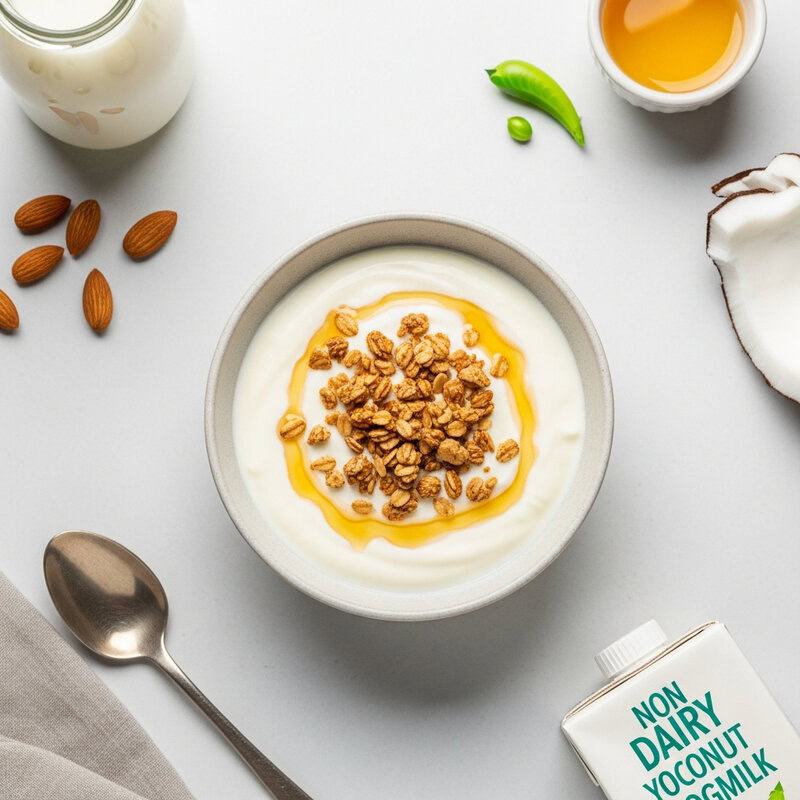
Yogurt contains probiotics, beneficial bacteria that support gut health and positively influence the gut-brain axis—a key pathway in regulating mood and stress. Studies have shown that regularly consuming probiotic-rich foods like yogurt can help reduce symptoms of anxiety and promote emotional well-being.
For those who are lactose intolerant or avoid dairy, non-dairy yogurts made from almond, coconut, or soy milk often include added probiotics and offer similar benefits. Including yogurt in your daily diet can be a simple way to improve both gut and mental health. Read about probiotics and anxiety.
5. Chamomile Tea

Chamomile tea is renowned for its soothing effects, making it a popular natural remedy for stress and sleeplessness. Clinical trials have demonstrated chamomile’s ability to reduce anxiety symptoms and promote better sleep quality, likely due to its antioxidant and anti-inflammatory compounds.
Chamomile is often preferred over other herbal teas such as peppermint or lemon balm for its specific calming properties. Sipping a warm cup of chamomile tea before bedtime or during stressful moments can help foster a sense of relaxation and well-being. Discover clinical studies on chamomile and stress.
6. Avocado
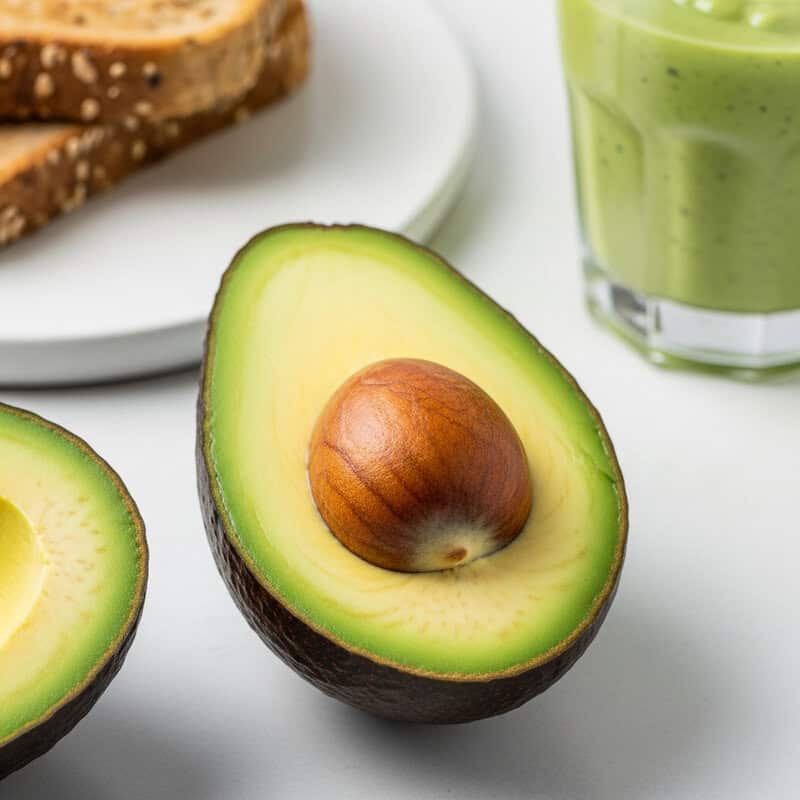
Avocados are rich in folate and healthy monounsaturated fats, both of which play a significant role in mood regulation and controlling cortisol levels. Folate supports neurotransmitter function, aiding in the production of serotonin and dopamine—chemicals vital for emotional stability.
Meanwhile, the heart-healthy fats in avocados help decrease inflammation and support overall brain health. Enjoy avocados sliced on whole grain toast, blended into smoothies, or as a creamy addition to salads and wraps. Their versatile nature makes them an easy, nutritious option to help manage stress. Learn more about avocados and mental well-being.
7. Oats
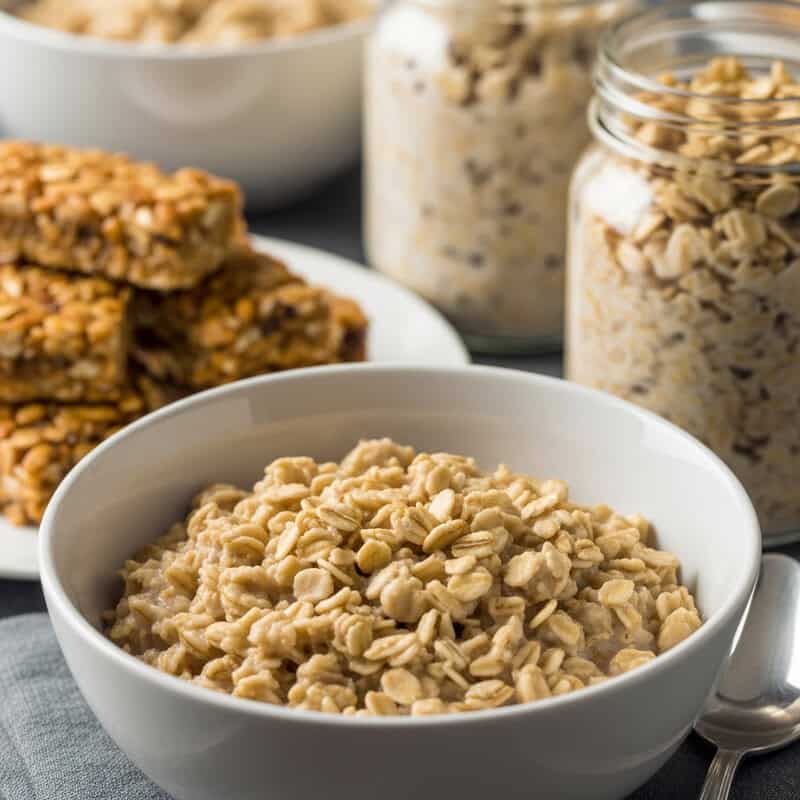
Oats are an excellent source of complex carbohydrates, which encourage the production of serotonin, a neurotransmitter that fosters feelings of calm and well-being. Unlike simple sugars, the slow-digesting carbs in oats provide steady energy without causing spikes and crashes, which helps stabilize mood throughout the day.
Enjoy oats in a variety of forms—classic oatmeal for breakfast, overnight oats for convenience, or oat-based energy bars for a quick snack. Their versatility and calming effects make oats a smart choice for stress management. Explore the mood-boosting benefits of oats.
8. Spinach
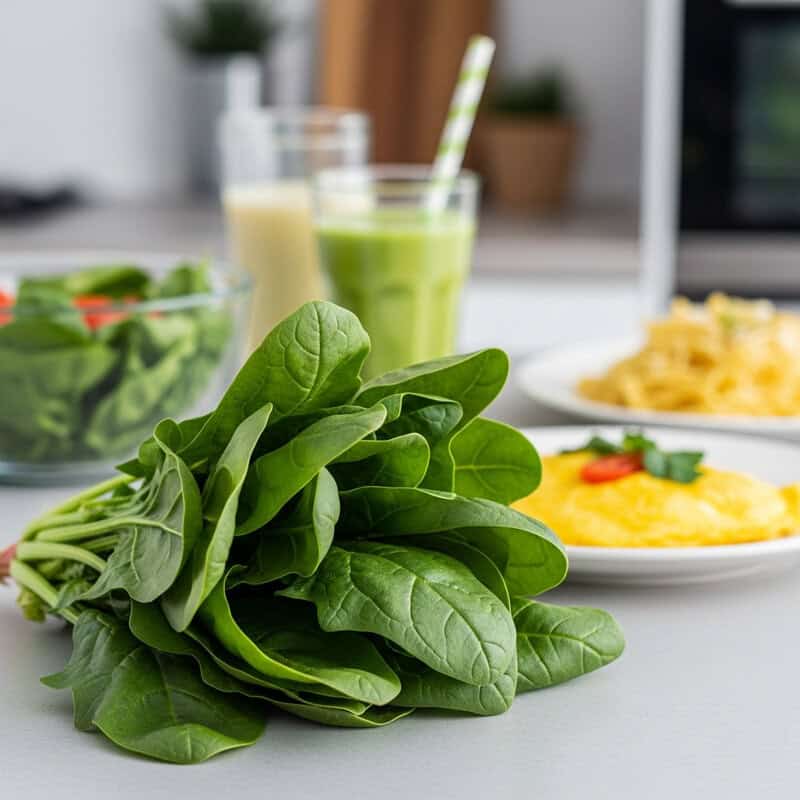
Spinach is a powerhouse of magnesium, a mineral essential for stress management and nerve function. Magnesium helps regulate cortisol levels and supports muscle relaxation, both of which are crucial for reducing tension and anxiety.
If spinach isn’t available, Swiss chard and other leafy greens offer similar magnesium content and benefits. Incorporate spinach easily by adding it to salads, blending it into smoothies, or stirring it into omelets and pasta dishes. These simple additions can enhance your nutrient intake and help your body better cope with daily stress. Read about magnesium’s role in stress relief.
9. Almonds
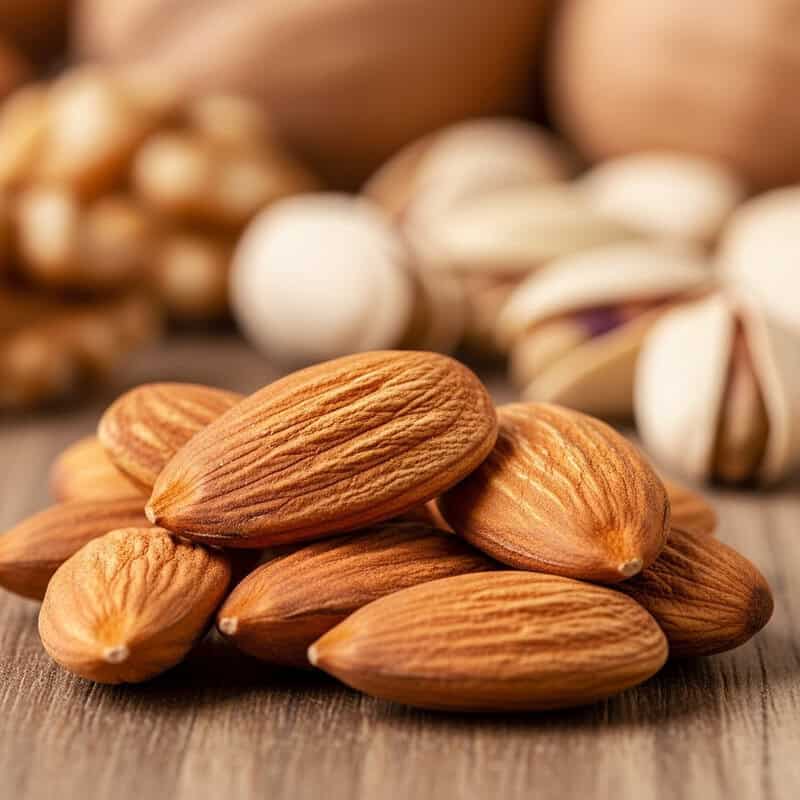
Almonds are packed with vitamin E and healthy monounsaturated fats, which help combat oxidative stress and support overall brain health. Vitamin E acts as a powerful antioxidant, protecting brain cells from damage linked to chronic stress.
Additionally, the healthy fats in almonds can help stabilize mood and provide sustained energy. Other nuts like walnuts and pistachios also offer stress-relieving benefits due to their similar nutrient profiles, but almonds are especially rich in vitamin E. Enjoy a small handful as a snack or sprinkle them over salads and yogurt. Discover how almonds benefit stress management.
10. Oranges

Oranges are renowned for their high vitamin C content, a nutrient shown to help lower cortisol levels and enhance mood. Studies have found that vitamin C not only supports immune function but also plays a key role in reducing feelings of stress and anxiety.
Oranges, along with other citrus fruits like grapefruits, lemons, and tangerines, make easy and portable snacks for busy days. Their refreshing flavor and convenient packaging ensure that you can boost your vitamin C intake anywhere, anytime. Read more about vitamin C and stress reduction.
11. Turmeric
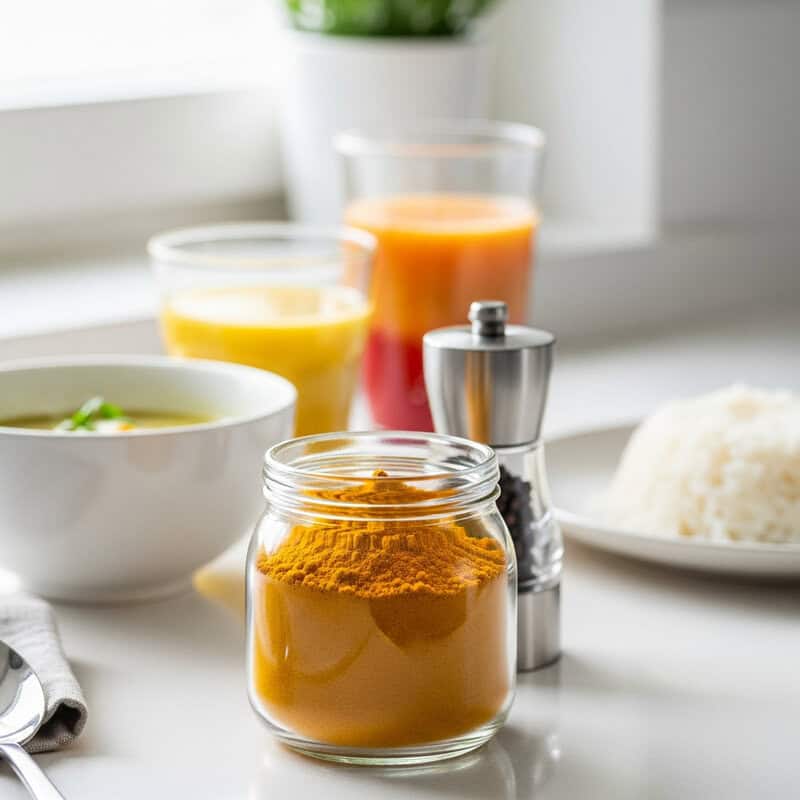
Turmeric contains curcumin, a potent compound known for its anti-inflammatory and mood-enhancing properties. Research suggests that curcumin can help reduce symptoms of anxiety and depression by modulating neurotransmitters and lowering inflammation in the brain.
To get the most out of turmeric, add it to soups, smoothies, or rice dishes, and pair it with black pepper to boost absorption. This golden spice is both versatile and beneficial for stress management, making it an easy addition to your daily routine. Learn more about turmeric’s mental health benefits.
12. Pumpkin Seeds

Pumpkin seeds are an excellent source of tryptophan, an amino acid that supports serotonin production and promotes relaxation. They’re also rich in magnesium, a mineral associated with improved sleep quality and reduced anxiety. These two nutrients work together to help regulate mood and encourage restful sleep.
Although sunflower seeds also offer magnesium and healthy fats, pumpkin seeds have a notably higher tryptophan content, making them especially effective for stress relief. Enjoy pumpkin seeds as a topping on salads, stirred into yogurt, or as a crunchy snack. Discover more about pumpkin seeds and stress.
13. Eggs
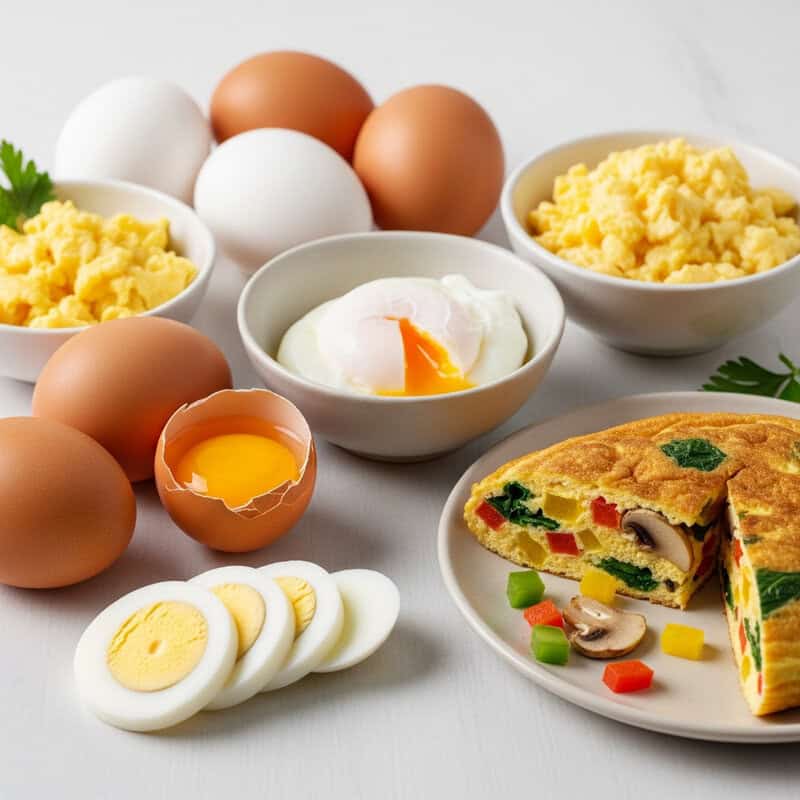
Eggs are a powerhouse of complete protein and B vitamins, particularly B6, B12, and folate, which play a vital role in maintaining neurotransmitter balance and supporting stress management. These nutrients help produce serotonin and dopamine, key chemicals that regulate mood and emotional well-being.
Eggs are quick to prepare, making them ideal for busy mornings or snacks—enjoy them boiled, scrambled, poached, or in a veggie-packed omelet. Their versatility and nutrient density make eggs a convenient and effective food for keeping stress at bay. Read about eggs and mental health.
14. Sweet Potatoes

Sweet potatoes are rich in complex carbohydrates and vitamin B6, both of which are essential for regulating mood and sustaining energy levels. The slow-digesting carbs help maintain steady blood sugar, which can prevent mood swings and anxiety, while vitamin B6 aids in the production of serotonin, a neurotransmitter linked to happiness and calmness.
For a nutritious boost, try baking, roasting, or steaming sweet potatoes instead of frying. These methods preserve their nutrients and provide a delicious, comforting addition to any meal. Explore the benefits of sweet potatoes.
15. Green Tea

Green tea contains L-theanine, an amino acid known for its calming and stress-reducing effects. L-theanine promotes relaxation without drowsiness by increasing alpha brain waves, which is a benefit not typically found in black tea or coffee due to their higher caffeine content and lack of significant L-theanine.
Green tea offers a gentle energy boost with less jitteriness, making it suitable for morning or afternoon consumption. Sipping a warm cup during breaks can help you stay focused and relaxed throughout the day. Read about green tea and stress relief.
Conclusion
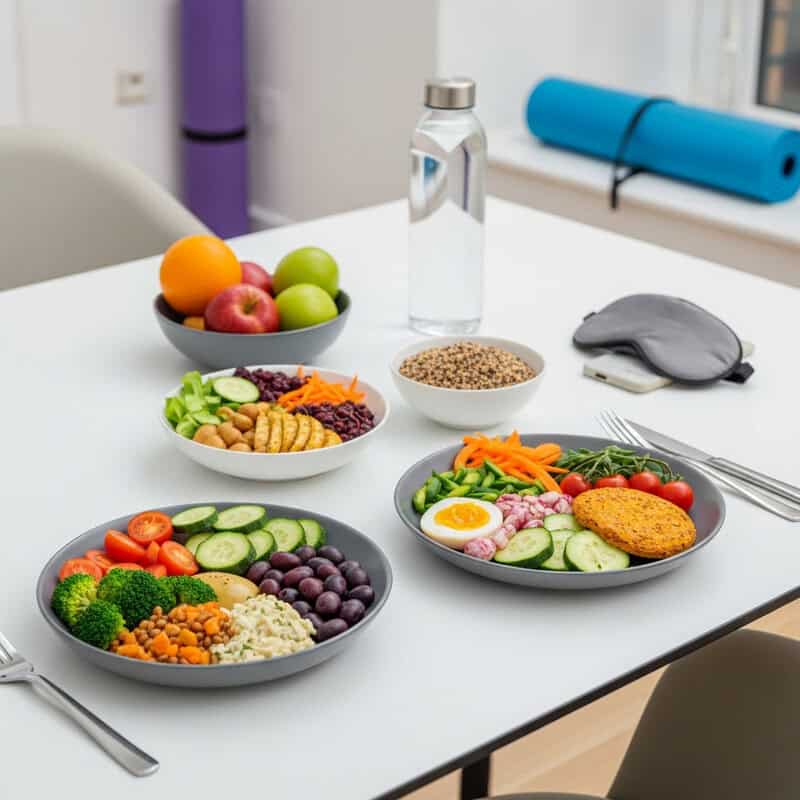
Incorporating these nutrient-dense foods into your meals can make a meaningful difference in managing daily stress and supporting emotional well-being. While a balanced diet rich in vitamins, minerals, and healthy fats is a powerful tool for stress reduction, it’s important to remember that nutrition is just one part of a holistic approach. Regular exercise, sleep, and mindfulness practices all contribute to greater resilience. For more strategies on managing stress, visit the Mental Health Foundation’s stress resources.
Disclaimer

This article is for informational purposes only and should not be considered a substitute for professional medical advice, diagnosis, or treatment. Always consult a healthcare provider for personalized guidance. Learn more at NIH.
